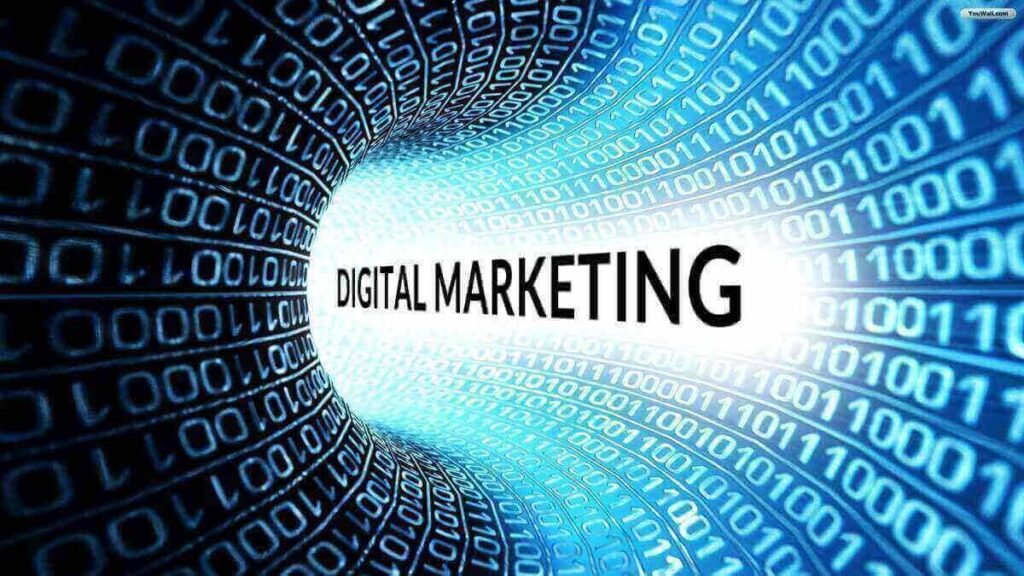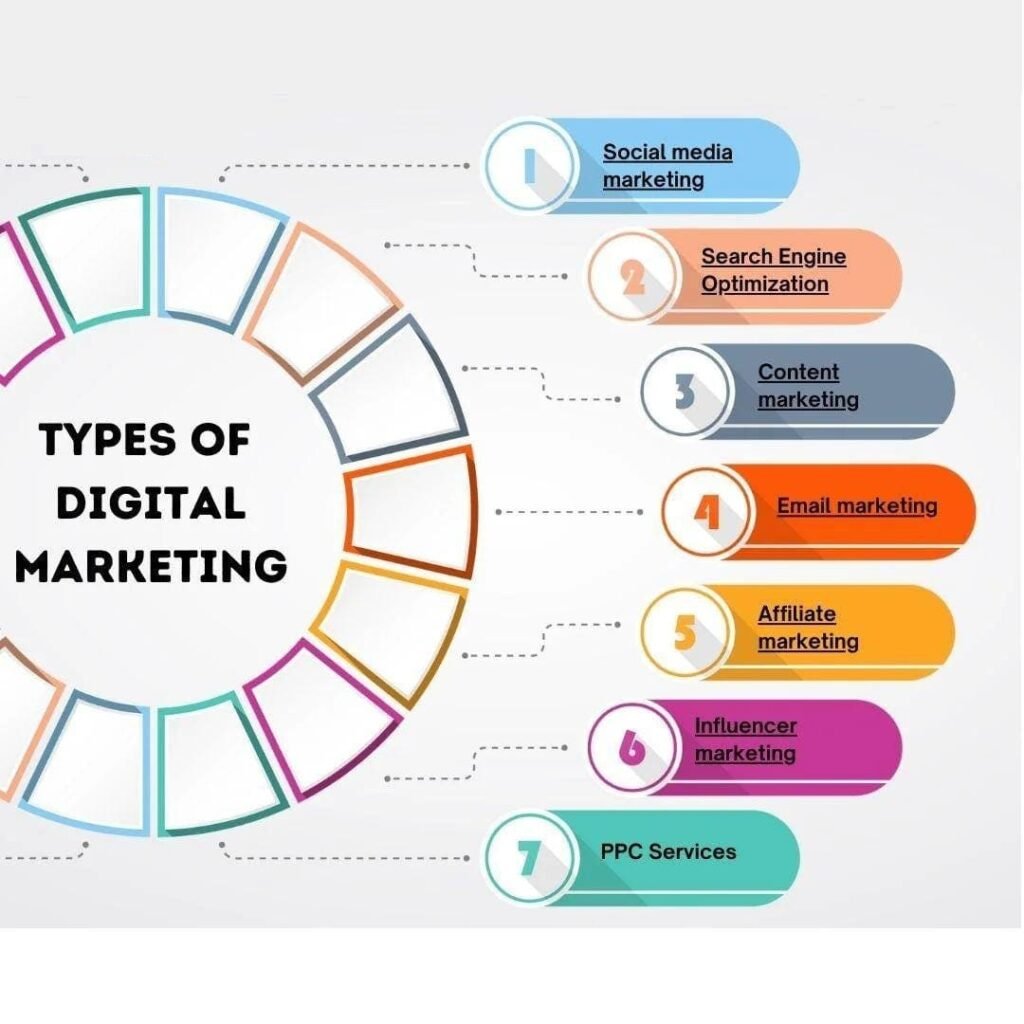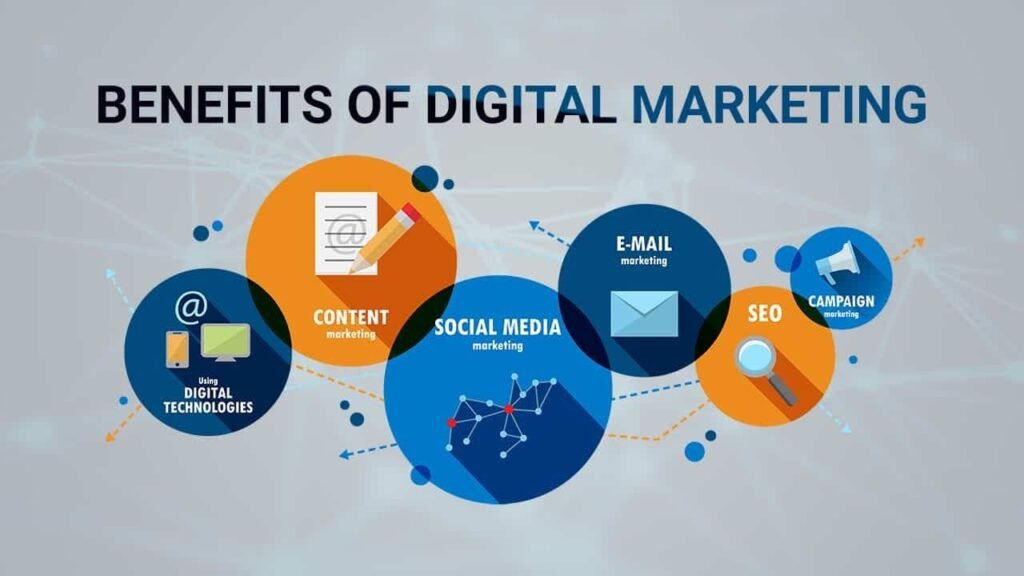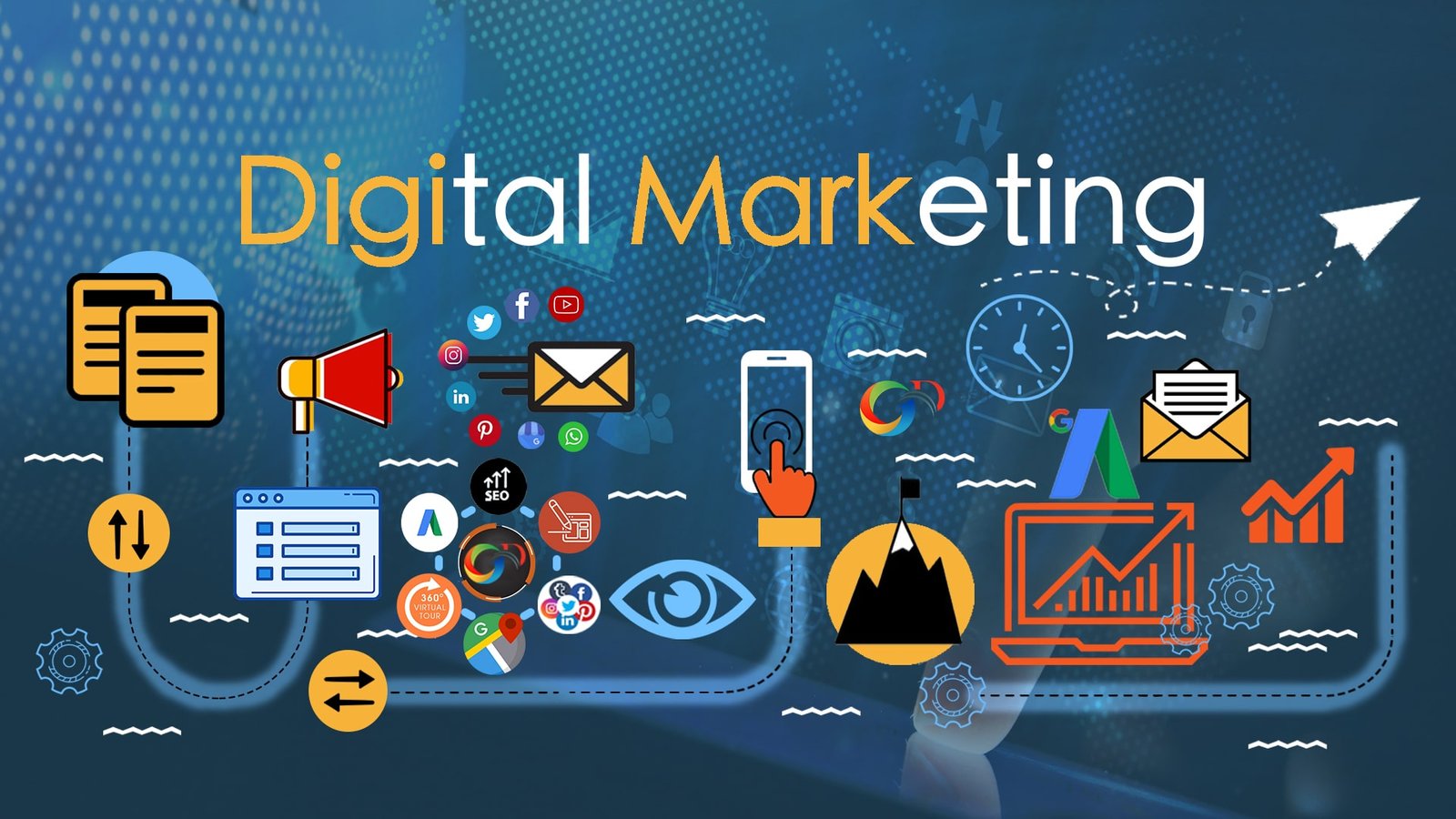Table of Contents

Digital marketing has revolutionized the way businesses reach and engage with their audiences in the digital age. In this article, we’ll delve into the intricacies of digital marketing, exploring its various types, providing examples, and highlighting its numerous benefits.
Introduction to Digital Marketing
Digital marketing encompasses all marketing efforts that utilize electronic devices and the internet to connect with customers and promote products or services. It has become an indispensable aspect of modern business strategies, enabling organizations to adapt to the digital landscape and effectively target their audience online.
Understanding the Concept
Definition of Digital Marketing
Digital marketing involves leveraging digital channels such as search engines, social media platforms, email, and websites to communicate with current and prospective customers. It focuses on building brand awareness, driving traffic, generating leads, and ultimately, achieving business objectives.
Evolution and Importance
Digital marketing has evolved significantly over the years, adapting to advancements in technology and changing consumer behaviors. Its importance lies in its ability to reach a vast audience instantly, engage with customers in real-time, and measure the effectiveness of marketing campaigns with precision.
Types of Digital Marketing

Search Engine Optimization (SEO)
SEO aims to improve a website’s visibility in search engine results pages (SERPs)] through organic strategies such as keyword optimization, content creation, and link building.
Social Media Marketing (SMM)
SMM involves utilizing social media platforms like Facebook, Instagram, Twitter, and LinkedIn to connect with audiences, build brand awareness, and drive engagement through targeted content and advertisements.
Content Marketing
Content marketing focuses on creating and distributing valuable, relevant, and consistent content to attract and retain a clearly defined audience, ultimately driving profitable customer action.
Email Marketing
Email marketing involves sending personalized messages to a targeted audience to promote products, share updates, and nurture customer relationships, leveraging the power of direct communication.
Pay-Per-Click (PPC) Advertising
PPC advertising allows businesses to bid for ad placement in search engine results and pay a fee each time their ad is clicked, offering a cost-effective way to drive targeted traffic to their websites.
Affiliate Marketing
Affiliate marketing entails partnering with individuals or businesses (affiliates) who promote products or services in exchange for a commission for each sale or lead generated through their referral.
Influencer Marketing
Influencer marketing involves collaborating with influential individuals on social media to endorse products or services, leveraging their credibility and reach to expand brand awareness and drive conversions.
Examples of Digital Marketing Strategies
- SEO: Optimizing website content and meta tags to improve search engine rankings.
- SMM: Running targeted ad campaigns on Facebook to reach a specific demographic.
- Content Marketing: Publishing blog posts, articles, and videos to educate and engage audiences.
- Email Marketing: Sending personalized newsletters with product recommendations and discounts.
- PPC Advertising: Launching Google AdWords campaigns to drive traffic to landing pages.
- Affiliate Marketing: Partnering with bloggers to promote products and earn commissions on sales.
- Influencer Marketing: Collaborating with Instagram influencers to endorse a new product launch.
Benefits of Digital Marketing

Increased Reach and Visibility:-Digital marketing allows businesses to reach a global audience instantaneously, breaking geographical barriers and expanding market reach.
Targeted Advertising :-With digital marketing, organizations can target specific demographics, interests, and behaviors, ensuring their messages resonate with the right audience segments.
Cost-Effectiveness :- Compared to traditional marketing channels, digital marketing offers a more cost-effective solution, allowing businesses to allocate their budgets more efficiently and achieve higher returns on investment.
Analytics and Insights :- Digital marketing platforms provide detailed analytics and insights, enabling businesses to track the performance of their campaigns in real-time and make data-driven decisions to optimize their strategies.
Enhanced Engagement and Customer Interaction:- Through social media, email, and other digital channels, businesses can engage with customers in meaningful conversations, address their inquiries promptly, and build lasting relationships based on trust and transparency.
Conclusion
digital marketing has become an integral component of modern business strategies, offering a diverse range of tactics to reach and engage with target audiences effectively. By leveraging the power of digital channels, businesses can enhance their brand visibility, drive customer engagement, and achieve their marketing objectives with greater precision and efficiency.
Unique FAQs
- What are the key components of a successful digital marketing strategy?
- A successful digital marketing strategy typically includes a mix of SEO, social media marketing, content creation, email marketing, and data analytics.
- How can businesses measure the effectiveness of their digital marketing campaigns?
- Businesses can measure the effectiveness of their digital marketing campaigns through key performance indicators (KPIs) such as website traffic, conversion rates, click-through rates, and return on investment (ROI).
- What are some common challenges faced by businesses in digital marketing?
- Common challenges in digital marketing include keeping up with rapidly evolving trends and technologies, navigating algorithm changes on social media platforms, and ensuring compliance with data privacy regulations.
- Is digital marketing suitable for all types of businesses?
- Yes, digital marketing can be beneficial for businesses of all sizes and industries. However, the specific strategies and tactics employed may vary based on the nature of the business and its target audience.
- How can businesses stay ahead in the competitive landscape of digital marketing?
- To stay ahead in digital marketing, businesses should focus on continuous learning, staying abreast of industry trends, experimenting with new strategies, and maintaining a customer-centric approach to marketing efforts.



Leave a Reply